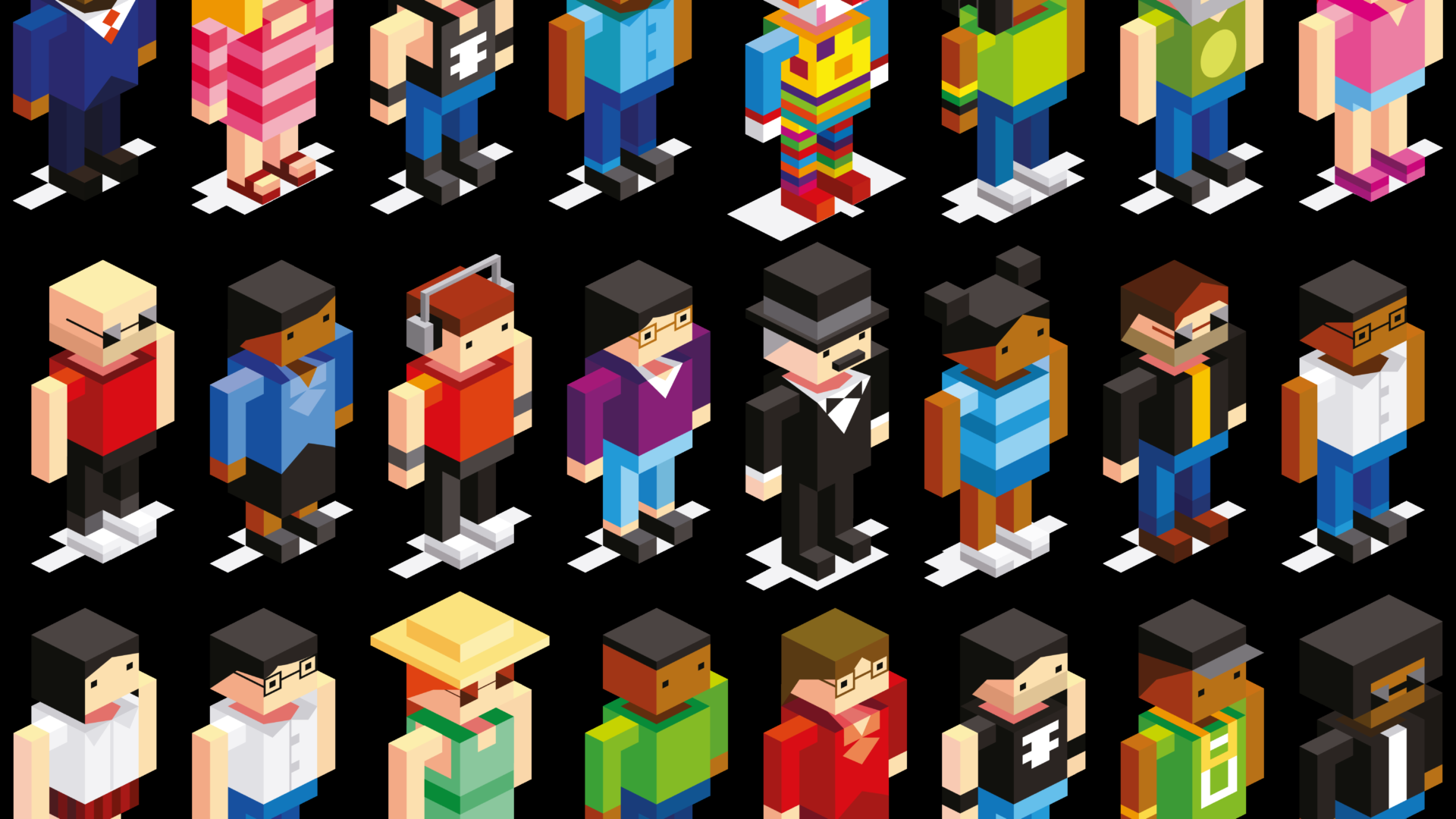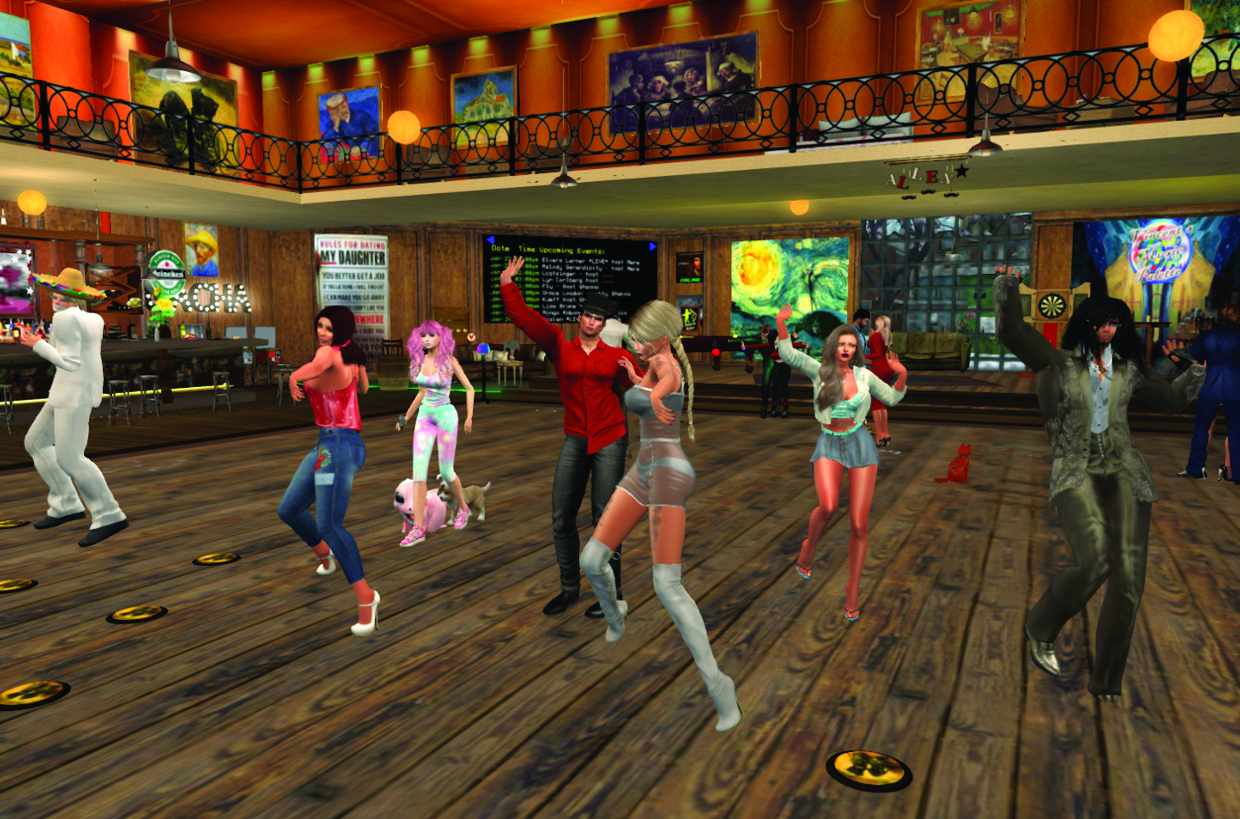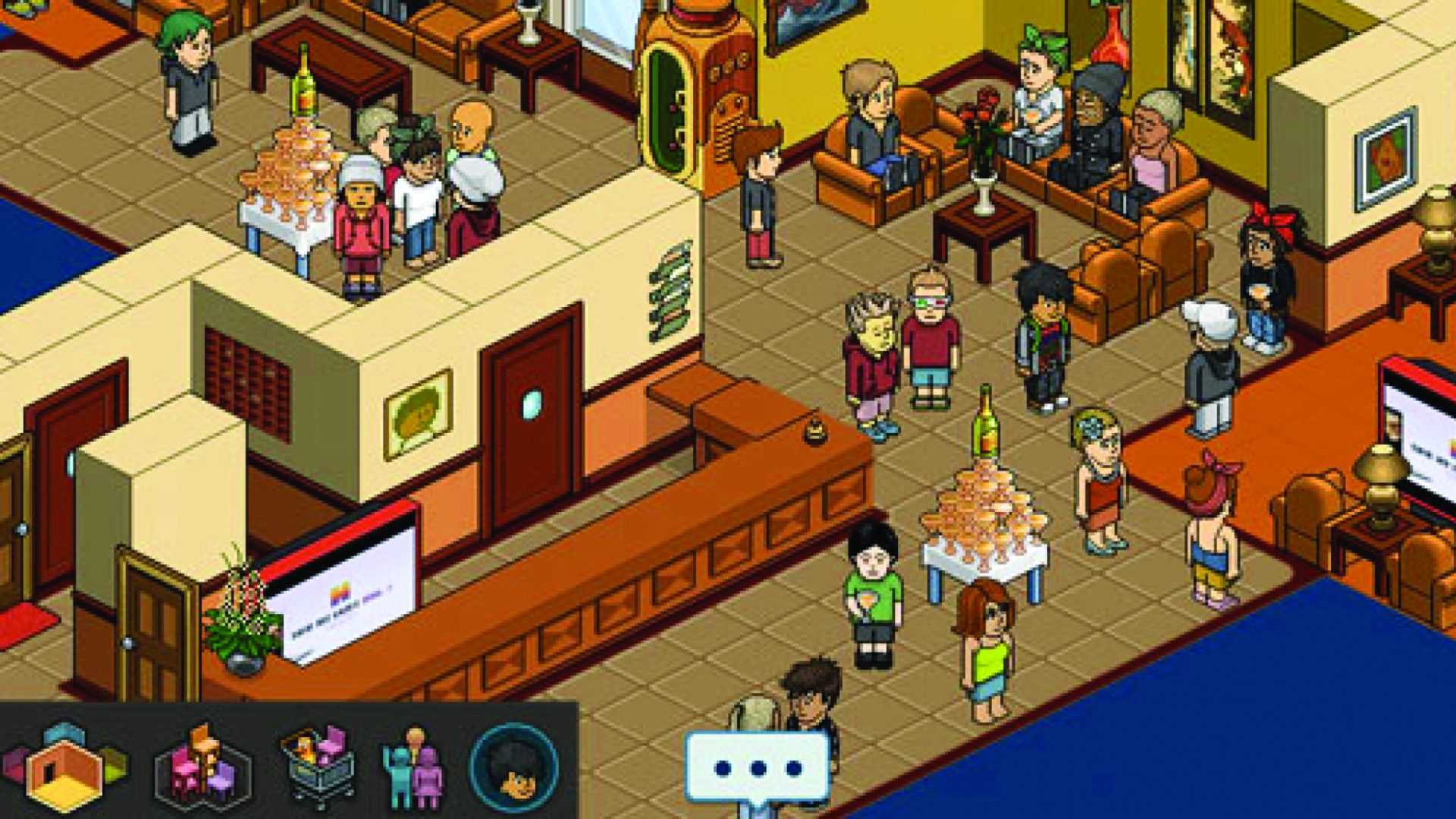Online you can choose who you are
A second, online identity is no longer reserved for gamers and Second-Life fans. Anyone can misrepresent themselves on social media and forums. Some people seize this opportunity to experiment with self-expression.
Every two weeks, Bart van der Heijden (21) is told he should kill himself. Not that anyone tells him this to his face. Van der Heijden spends on average eight hours a week immersed in the world of Rocket League. ‘A hybrid between a sports and racing game,’ he explains enthusiastically. ‘You play in teams of two or three. Communication is really important, and takes place in a chat.’
You don’t have to choose your team if you don’t want to, so you sometimes end up in a chat with people you don’t know. If you don’t play ‘well enough’, says Van der Heijden, you may get a comment along the lines of: ‘I’ve never seen anyone play so badly. You should kill yourself.’
‘Of course, people would never say this kind of thing in real life,’ says Van der Heijden. ‘Because it would have repercussions.’ But in the world of Rocket League, there are no repercussions. Nobody knows who anyone is anyway.
Van der Heijden is a fervent fan of online RPGs (role-playing games), in which players create a virtual character and are free to choose their character’s appearance and skills. Van der Heijden is much less concerned about the hair colour or clothing of his online character – his avatar – than about their behaviour. ‘I don’t want to be an asshole,’ he says, referring to the people who sometimes wish him dead. ‘You see, it’s quite easy to be an asshole in an online environment; you forget that there’s another human being facing you. I appreciate it when people can control themselves and act decently towards other online characters.’
Van der Heijden has many different offline activities: a study programme in Artificial Intelligence at Radboud University, his girlfriend and his friends. He also has an online life, in which he makes jokes, has conflicts, and shares sadness and joy with the people he meets in games.
Second Life
In 2003 a San Francisco game developer released the virtual 3-D world Second Life. The creators promised that a large portion of our life would soon be taking place online. In the virtual world, the player’s avatar would be able to go to a bar, a meeting or the cinema, all things that also happen in real life. In the heyday of the Second Life hype, around 2008, the avatars of bands like Di-rect performed virtually in the game, and the avatars of Dutch politicians went around distributing campaign flyers.
‘It’s quite easy to be an asshole in an online environment’
Second Life never did take over the world, but it is still the game most people associate with a second life online, says Daniëlle Bleize, PhD student in Communication Science at Radboud University. Bleize studies computer-mediated communication and the social aspects of digital media. ‘I immediately associate the term ‘second life online’ with Second Life or Habbo Hotel [a 2000 virtual world in which players create an avatar, design a hotel room and chat with other players, Eds.].’
‘Public perception seems to be that having a second online persona is a bit sad,’ says the Communication Science expert. ‘But in research, the term ‘second life’ is understood much more broadly to cover any online platform that gives people the opportunity to present a selective or different image of themselves.’ Including social media.
The fact is that we increasingly live our lives online. On social media, a person is still often known by their name. On forums people are anonymous, which leaves more room for adopting a different character. And in virtual worlds and video games, users have complete freedom to reinvent themselves.
Pim Haselager, Associate Professor in Artificial Intelligence and Head Researcher at the Donders Institute, points out that these online worlds are not just for fun. ‘They can also take on a corporate form. There are entire office buildings online.’ People who work from home use their avatar to walk through the building, for example to attend a meeting. Haselager: ‘These buildings are made in such a way that you can only hear the other people in the room if you stand close to them.’
Onlife
Although people are spending more and more time in their ‘second life online’, this ‘outdated’ term could use a refresher, says Katleen Gabriels. Gabriels is a moral philosopher at the University of Maastricht, where she specialises in computer ethics. Gabriels prefers the term ‘onlife’, which expresses the idea that our online and offline lives are gradually merging. In 2016, she wrote a book about it.
‘In the 1980s and 1990s, there was still a real distinction between online and offline. For example, it was better not to ask people questions for a research study online, since this supposedly made it easier for them to lie.’
Since the early 21st century, the idea of onlife has increasingly become accepted, says Gabriels. ‘Researchers discovered that many people don’t see their online and offline lives as separate at all. Ten-year-olds who create videos on TikTok view it as their second identity.’
‘Public perception seems to be that having a second online persona is a bit sad’
As part of her PhD research, Gabriels spent one year following twenty Second Life users, online and offline. The people who really saw Second Life as their second life were in the minority, even on this platform. ‘People started playing Second Life to be someone else,’ explains Gabriels. ‘But as they progressed, their avatar slowly merged with their offline identity. A 70-year-old woman found it a relief not to have to be a widow in the game, so she pretended to be a 37-year-old with children. But she had to keep inventing things, which she found increasingly difficult to keep up with. I have spoken to people who were forced to keep track of entire lists of lies.’
Self-expression
‘I walked around in the game RuneScape for about two years with extremely purple hair and green skin,’ explains gaming fan Van der Heijden. ‘Not because I thought it looked particularly good, but because I’m severely colour-blind and I thought I looked normal. I only found out because my girlfriend said something about it,’ he laughs. ‘But people didn’t comment on it in the game.’
And this provides space for experimenting, says Van der Heijden. ‘Games offer a lot of freedom and scope. If you can’t express yourself in one game, you can move to a different platform. In this way, you always end up finding like-minded people.’
And this gives ‘pretending to be someone else’ – a frequently heard drawback of the online world – a completely different connotation. Taking on a different identity online doesn’t have to be a bad thing at all. And yet, these supposed drawbacks are what people tend to talk about most, says Bleize. ‘Which is a pity because gaming also offers a lot of positive things. The online world makes it possible to experiment with self-expression.’
Pim Haselager studied self-perception in relation to game addiction. ‘A number of self-reports showed that people sometimes use games to experiment with things like gender. It can be interesting as a man to play a woman, or the other way around.’ For people who struggle with their gender identity a game can be part of self-exploration, explains Haselager. ‘People choose an aspect of their personality, magnify it and then see whether they like it.’
What about the insults that gamer Van der Heijden gets on a regular basis? There are certainly drawbacks to online life, says Bleize. ‘After all, online actions don’t always have physical consequences.’ Still, there is more attention for victims of online bullying and perpetrators are sometimes brought to justice, says philosopher Gabriels. And this is in part thanks to growing recognition of the term ‘onlife’. ‘We used to tell people to just turn off their computer, but now we know that online bullying or revenge porn has consequences in real life.’
And people don’t really ‘pretend to be someone else’ online, she says. Of course, it’s much easier to swear at someone online. ‘But are you really taking on a second identity when you do this? Or is it just that the technology reinforces your real-life character?’
Virtual happiness
How far do these technological possibilities go? In other words, to what extent can you immerse yourself in an online world? There are technologies – such as virtual reality glasses – that make an online experience a lot more immersive. But physical contact remains a hurdle – you can’t hug your online friends. ‘One day, we’ll be able to simulate even this kind of remote physical contact,’ says Haselager. ‘But it’ll be a while before we can do so convincingly.’
Gravity is still on this side of the screen, says Haselager. ‘Here is where we eat, go to the toilet, make love. We’re walking with our feet in the mud and this isn’t about to change. If you give people a choice between being happy in real life and unhappy online, or the other way around, I don’t think anyone will say: make me happy in the virtual world. But online life may provide an escape if you’re unhappy in real life.’
‘Online life may provide an escape if you’re unhappy in real life’
If he had to choose between his online friends and his real-life friends, Bart van der Heijden would also choose his real-life friends. In the 12 years he has spent gaming online, he has made many online friends. ‘It’s easy in a game because there’s so much choice. But you do miss the physical contact, because the friendship centres on the conversations you have.’ Which doesn’t necessarily stand in the way of deep contact, he says. ‘I have two online friends from Switzerland who really helped me choose the right study programme for me. They understand my problems, and I understand theirs.’
Van der Heijden has also met some of his online friends in real life. Some of these meetings were disappointing. ‘In cases like this, the contact usually dwindled away afterwards,’ he says. Was the friendship in the online second world real then? Yes, says Van der Heijden. ‘I was friends with someone’s online personality. There’s nothing wrong with that, as long as the friendship stays online. You have to be able to keep the two worlds separate.’






